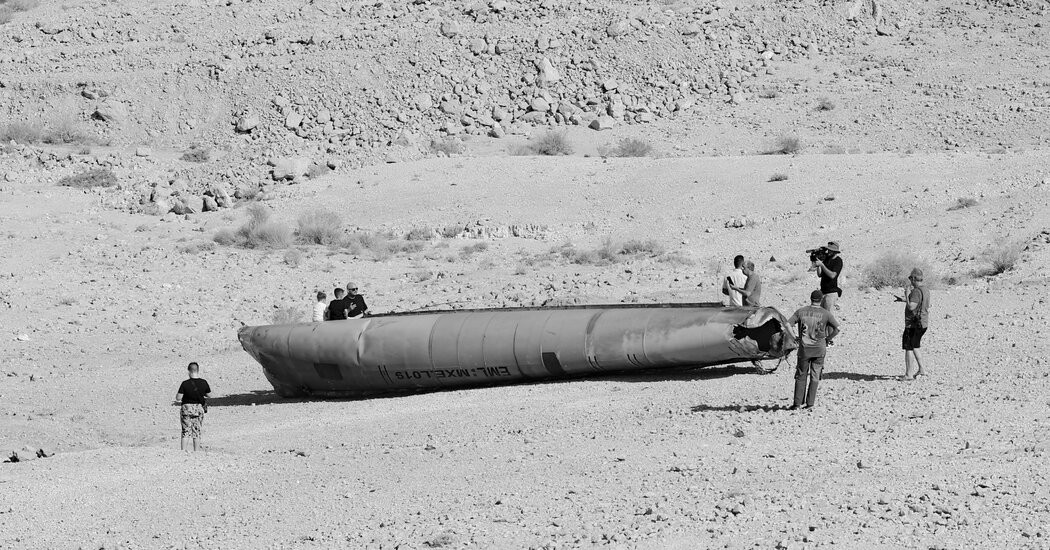

Iran’s supreme leader, Ayatollah Ali Khamenei, learned the limits of his foreign policy strategy this week: Even well-armed and well-trained surrogate forces can prove unreliable if a determined modern army disables them.
After the death of Hassan Nasrallah and many of the other members of the upper echelons of the Lebanese Hezbollah, the clerical regime’s thwarted ballistic-missile attack on Israel on Tuesday was an attempt to diminish the humiliation that Tehran has felt after Israel rapidly deconstructed Iran’s most cherished protégé. With Hezbollah as a model and partner, Tehran had perfected Islamist imperialism on the cheap: Proxies spread the faith and mauled Iran’s enemies while shielding it from direct retaliation.
But as the Israeli offensives in Gaza and Lebanon have revealed, an aspiring regional hegemon with limited conventional capacity needs more firepower and deterrence than proxies alone can deliver. Israel may have already destroyed much of Hezbollah’s most dangerous missiles, launchers and missile crews. And given the two-time failure of Iran to overwhelm the Jewish state’s air defenses, the regime’s huge investment in ballistic and cruise missiles has also proved suddenly wanting.
Where, then, might Ayatollah Khamenei turn next? Despite the supreme leader’s stated religious objections to nuclear weapons, Iran has been steadily making progress on its nuclear weapons capabilities over the past year. It is now, according to the U.S. government, down to a one-to-two-week breakout time to produce enough uranium for one atomic bomb, though it could take it several months to field a nuclear weapon.
With its proxy fighters under siege and its conventional weapons proving insufficient, Tehran may be closer than ever to crossing the threshold and building a nuclear weapon. Iran’s missile barrages could provoke Prime Minister Benjamin Netanyahu of Israel to risk a strike aimed at its nuclear facilities and deny Tehran the only weapon that could guarantee its freedom to maneuver.
For decades, the Iranian leadership has wanted to project power at arm’s length, seeing that its legitimacy rested on exporting the Islamic revolution abroad. Conditions were ripe for this strategy in the post-9/11 Middle East. When the regional state system essentially collapsed, Tehran marched into the vacuum. The Islamic Republic’s proxies saw success in the civil wars in Iraq and Syria and demoralized America even after the 2007 U.S. surge in Iraq routed many of Iran’s local allies. In Yemen the Iranian-supported Houthis, whose Shiite radicalization is recent but deep, wore down the alliance of Saudi Arabia and the United Arab Emirates.